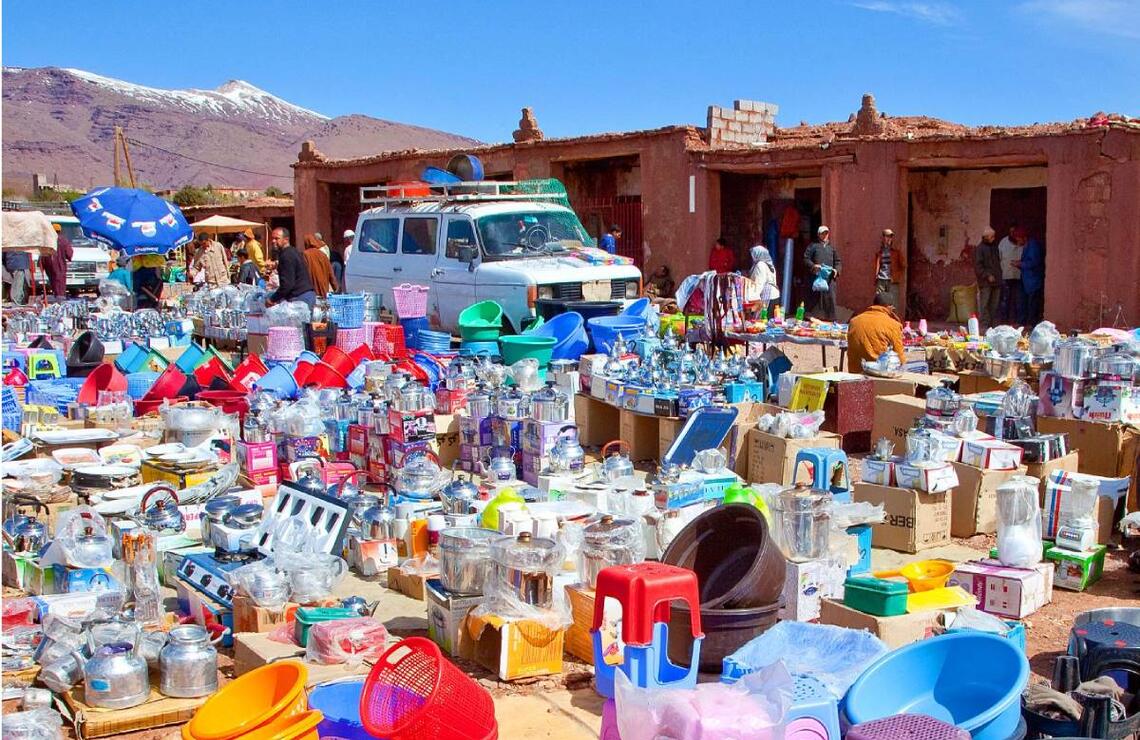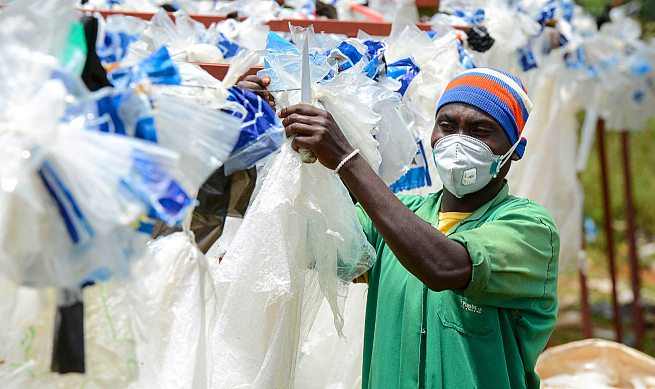
Plastic addiction
From 5 to 14 August, Geneva hosted the fifth round of United Nations negotiations to secure a treaty limiting the widespread use of polyethylene. In Africa, recycling is making little progress. Most accumulates in the soil and water for centuries, making it a real economic and environmental scourge.
Back in June, at the United Nations Ocean Conference (UNOC-3) held in Nice, 95 countries reiterated their commitment to reducing plastic production and consumption. Then, from 5 to 14 August in Geneva, the international community’s Intergovernmental Negotiating Committee (INC) met once again (INC-5.2) to negotiate a treaty that will finally phase out plastic from the economy and transform the packaging industry into one that reduces its environmental impact. It was meant to be the sixth and final round of talks. Instead, exhausted delegates left with a draft that included ‘a comprehensive approach that addresses the full life cycle of plastics’. Environmentalists are sceptical because, although the pollution caused by this material has been condemned for decades, its production continues to grow, reaching 460 million tonnes in 2024.
The United Nations has been working on this treaty since 2022. However, discussions are dragging on because countries with thriving petrochemical industries are opposed to any binding reductions (such as China, the world's leading producer). The United States prefers to focus on recycling and eco-design, pretending to ignore the fact that even the champions of recycling – Germany and Sweden, for example – only manage to give around half of their plastic waste a second life. In most countries, and especially in Africa, around 10% of plastic is recycled. The rest accumulates, for centuries, in natural environments, rivers, and oceans. In 2020, a scientific study calculated that recycling is unable to keep pace with the frenetic rate of production: by 2040, no less than 720 million tonnes of additional waste is expected to end up in the oceans! In a 2023 report, the United Nations Environment Programme (UNEP) proposed sending this type of waste to cement kilns, arguing that this would reduce pollution levels by 80% in twenty years. Environmentalists criticise this as a false solution, pointing out that burning plastic releases greenhouse gases and toxic particles into the atmosphere.
A TRUE SCOURGE

In Africa, plastic bags have gradually replaced biodegradable plant-based packaging. In just a few decades, this waste has changed the face of the continent, with catastrophic repercussions on the economy, society, public health, agriculture, livestock farming and marine ecosystems, not to mention the visual and olfactory impact of waste piles, which are transforming entire ecosystems. Many beaches and estuaries have become literal rubbish dumps. Most urban rivers are suffocating under the accumulation of bottles and bags, which remove oxygen from the water and affect aquatic life. In the Sahel, bags are ingested by livestock, which eventually die. In cities, plastic waste clogs water drainage channels and exacerbates flooding. Even more insidious and worrying are the impacts of microplastics, pollutants that scientists are finding even in breast milk. In response to this scourge, recycling initiatives are constantly on the rise, driven by businesses and volunteers. In Senegal, plastic is recycled into water tanks by a company called Ultraplast, while another company, Defarat, turns it into surfboard fins. In Côte d'Ivoire and Kenya, companies are designing bricks and partitions that are then used to build classrooms and housing. In Libreville, Casablanca and Abidjan, citizen-led waste collection initiatives are multiplying. But these measures will not be enough unless production and consumption are stopped. In Togo, where each urban dweller uses an average of six plastic bags per day, most of which end up in the environment, the authorities are calling on citizens to ‘radically change their behaviour in terms of plastic consumption’.
POORLY ENFORCED BANS
Africans use an average of 16 kg of plastic per year, compared to 255 kg for Americans and 153 kg for Europeans. But in many countries on the continent, poor plastic management is exacerbating pollution. Nigeria, which accounts for 17% of the continent's plastic consumption, has become the world's second-largest polluter (behind India). After much procrastination, the Nigerian authorities are preparing to ban single-use plastic and polystyrene this year the law has been ready since 2019 but has never been enacted. African NGOs deplore the lack of commitment on the part of the authorities: while most states (34 out of 54) now have laws to stem the flow of waste, few enforce them rigorously. In Senegal, the 2020 law banning single-use plastics granted an exemption for water bags, the manufacture and sale of which represents thousands of jobs: ‘Our socio-economic realities do not allow us to move towards a total ban,’ admitted the Minister of the Environment, while millions of empty bags litter the entire country. There is similar hesitation in South Africa, where the industry claims to provide no fewer than 65,000 salaried jobs. On the continent, Rwanda stands out for its radical and effective measures: plastic bags have been formally banned since 2008, a ban that was extended in 2019 to most plastics. On the last Saturday of every month, all citizens over the age of 16 are mobilised for umuganda, the mandatory clean-up day. Kigali can boast of having become the cleanest city on the continent.
Ghana, where only 9% of the 250,000 tonnes of plastic waste produced each year is recycled, is promoting the idea of a ‘global tax on plastic pollution’, which would be paid by the producing countries. This is also the view of scientists: in 2024, Lund University in Sweden looked into the feasibility of an international agreement that would cap plastic production and share the costs of replacing it with alternatives, which are often more expensive. Swedish researchers point out that in 1997, the Kyoto Protocol on greenhouse gases established an emissions quota that countries share in proportion to their industrial weight, with the aim of achieving ‘net zero emissions’ by 2050. Scientists in Lund are advocating a similar agreement to achieve ‘net zero plastic’ by 2050. African environmental organisations point out that the continent has managed without plastic for centuries. And alternatives do exist: in Rwanda, plastic is being replaced by plant fibres for packaging. Manufacturing these products provides jobs for village communities.